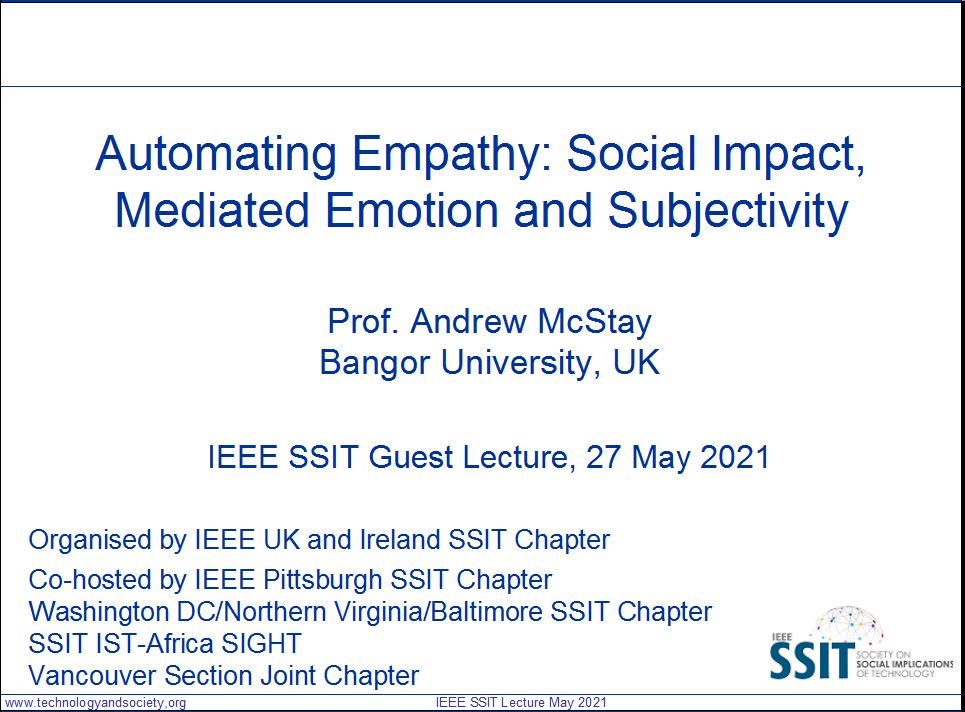
This SSIT Guest Lecture was presented by Prof. Andrew McStay, Bangor University, UK at a Joint Chapter Meeting organised by IEEE UK and Ireland SSIT Chapter and co-hosted by IEEE Pittsburgh SSIT Chapter, Washington DC/Northern Virginia/Baltimore SSIT Chapter, Vancouver Section Joint Chapter and SSIT IST-Africa SIGHT on 27 May 2021. Click here to view this Guest Lecture on IEEE.tv
Focus
This Lecture shared thoughts and ethical insights about the social trajectory of technologies that track and interact with human emotion and affective states.
Once off-limits, the boundaries of personal space and the body are being probed by emotional AI and technologies that simulate properties of empathy. This is occurring in worn, domestic, quasi-private and public capacities. The significance is environmental, in that overt and ambient awareness of intimate dimension of human life raises questions about human-system interaction, privacy, civic life, influence, regulation, moral limits and the desirability of the datafication emotional life.
To explore these issues, the lecture will provide historical context to these technologies, an overview of trends in current technological development, existing and emergent use cases, whether profiling of emotion is acceptable, and (if so) on what terms. Ethical recommendations will draw on empirical work of the Emotional AI Lab that McStay leads. This is currently conducting cross-cultural work in the UK and Japan, investigating use of empathic technologies and emotional AI in advertising, education, healthcare, media, mobility, security, toys, workplaces, and more.
Speaker
Andrew McStay is Professor of Digital Life at Bangor University, UK. His most recent book, Emotional AI: The Rise of Empathic Media, examines the impact of technologies that make use of data about affective and emotional life. Director of The Emotional AI Lab, current projects include cross-cultural social analysis of emotional AI in UK and Japan. An IEEE SSIT member, non-academic work includes standards development work for P7014 and ongoing advising roles for start-ups, NGOs and policy bodies. He has also appeared and made submissions to the United Nations Office of the High Commissioner on the right to privacy in the digital age, the UK House of Lords AI Inquiry and the UK Department for Culture, Media and Sport Inquiry on emotion, news and reality media.






 JOIN SSIT
JOIN SSIT